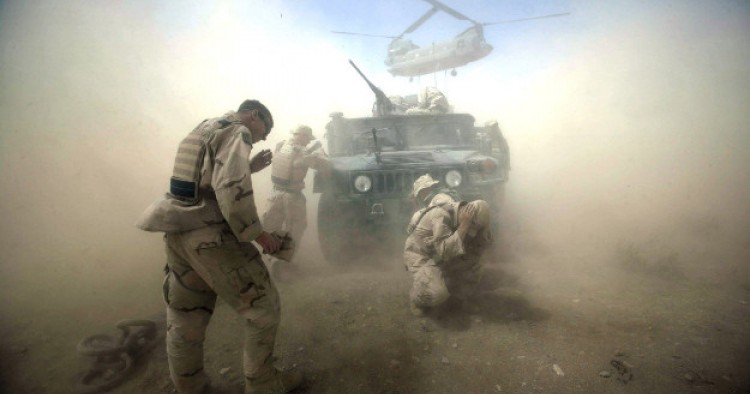The article was first published on NPR's Parallels blog.
When NPR photographer David Gilkey was killed by Taliban fire in a roadside ambush Sunday, he was doing what he always did — chasing an important story in a dangerous place. He did this from Afghanistan to Iraq to Liberia and many other places along the way.
Yet this trip with NPR Pentagon correspondent Tom Bowman held special significance. As the American military steadily withdrew its combat forces from Afghanistan, David and Tom spent the past several years embedding with Afghan forces to see if they were up to the job of defeating the Taliban.
It's a critical story that has largely been ignored. After 15 years of U.S. involvement in the Afghan war, the conflict has disappeared from the front pages in the U.S., and American interest has waned.
But David and Tom were back again in Afghanistan for a month — as they had been last year and many times before that — to take stock of the evolving Afghan military.
They spoke with American officers, some of the nearly 10,000 U.S. military personnel who are still in Afghanistan to advise and assist the Afghans. They interviewed Afghan officers to get their assessment of an army that's still very much a work in progress.
Yet David and Tom knew there was only one way to really find out how good or bad the Afghan forces are — by spending time with them on the front lines.
"We're staying with them, we're sleeping with them, we're eating with them, and we're going on patrol with them. Every day," David said last month just before he left for Afghanistan. "It's a look you only get by going there."
That took them to the most volatile part of the country, the southern province of Helmand, the heartland of the Taliban and one of the places where the radical group has been resurgent.
Their detailed reports painted a decidedly mixed picture. The Afghan forces have been getting stronger and fighting bravely. But their abilities are still limited, they depend heavily on American air cover, and the Taliban have exploited their weaknesses.
In a story Thursday, they described a nighttime raid by Afghan commandos that flushed Taliban fighters out of a forest and drove them out of the area but was less than a full success.
On Sunday, David and Tom were traveling in armored Humvees with the Afghan military on a road near Marjah, a southern agricultural town that's synonymous with opium production and a strong Taliban presence.
The Afghan military had recently cleared Taliban fighters out of the area, and the NPR journalists were having a look for themselves when their three-car convoy came under Taliban fire.
"We started taking machine-gun fire. We could hear mortars coming in," said Tom, who was in a separate Humvee from David.
David's vehicle was hit by a rocket-propelled grenade and he was killed along with Afghan journalist Zabihullah Tamanna, who was working as an interpreter for NPR. An Afghan soldier who was driving the vehicle was also killed.
In Tom's vehicle, which also included NPR producer Monika Evstatieva, an Afghan general ordered the driver to turn around and Tom and Monika made it back to the Afghan military base uninjured.
Over the course of the next couple of hours, the Afghan military brought the bodies of David and Zabihullah back to the base.
"He was a real character," Tom said of David. "I know people in the newsroom called him 'Smiley,' because he never smiled. He was really gruff. But he's a real sensitive soul. He's a real, complete artist."
"His pictures are absolutely beautiful and the ones he recently took, on a mission we went on, were just unbelievable," Tom told NPR's Morning Edition. "Any story you did, he made it better, because of his pictures."
The Middle East Institute (MEI) is an independent, non-partisan, non-for-profit, educational organization. It does not engage in advocacy and its scholars’ opinions are their own. MEI welcomes financial donations, but retains sole editorial control over its work and its publications reflect only the authors’ views. For a listing of MEI donors, please click here.













